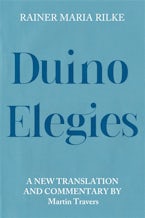
Title Details
288 Pages
22.8 x 15.2 cm
Series: Studies in German Literature Linguistics and Culture
Series Vol. Number:
230
Imprint: Camden House
Wilhelm von Humboldt and Transcultural Communication in a Multicultural World
Translating Humanity
- Description
- Contents
- Author
- Reviews
- Blog Post
Shows that the work of Wilhelm von Humboldt (1767-1835) forms a philosophy of dialogue and communication that is crucially relevant to contemporary debates in the Humanities.
Wilhelm von Humboldt (1767-1835) is the progenitor of modern linguistics and the originator of the modern teaching and research university. However, his work has received remarkably little attention in the English-speaking world. Humboldt conceives language as the source of cognition as well as communication, both rooted in the possibility of human dialogue. In the same way, his idea of the university posits the free encounter between radically different personalities as the source of education for freedom. For Humboldt, both linguistic and intellectual communication are predicated firstly on dialogue between persons, which is the prerequisite for all intercultural understanding.
Linking Humboldt's concept of dialogue to his idea of translation between languages, persons, and cultures, this book shows how Humboldt's thought is of great contemporary relevance. Humboldt shows a way beyond the false alternatives of "culturalism" (the demand that a plurality of cultural and faith-based traditions be recognized as sources of ethical and political legitimacy in the modern world) and "universalism" (the assertion of the primacy of a universal culture of human rights and the renewal of the European Enlightenment project). John Walker explains how Humboldt's work emerges from the intellectual conflicts of his time and yet directly addresses the concerns of our own post-secular and multicultural age.
Wilhelm von Humboldt (1767-1835) is the progenitor of modern linguistics and the originator of the modern teaching and research university. However, his work has received remarkably little attention in the English-speaking world. Humboldt conceives language as the source of cognition as well as communication, both rooted in the possibility of human dialogue. In the same way, his idea of the university posits the free encounter between radically different personalities as the source of education for freedom. For Humboldt, both linguistic and intellectual communication are predicated firstly on dialogue between persons, which is the prerequisite for all intercultural understanding.
Linking Humboldt's concept of dialogue to his idea of translation between languages, persons, and cultures, this book shows how Humboldt's thought is of great contemporary relevance. Humboldt shows a way beyond the false alternatives of "culturalism" (the demand that a plurality of cultural and faith-based traditions be recognized as sources of ethical and political legitimacy in the modern world) and "universalism" (the assertion of the primacy of a universal culture of human rights and the renewal of the European Enlightenment project). John Walker explains how Humboldt's work emerges from the intellectual conflicts of his time and yet directly addresses the concerns of our own post-secular and multicultural age.
Preface
A Note on Texts
List of Abbreviations
Introduction
1: Humboldt and the Dialectic of Enlightenment: Language, Culture, and Freedom
2: Language, Dialogue, and Translation: The Human Relevance of the Comparative Study of Language
3: Language Interaction and Language Change: Humboldt on the Kawi Language of Java
4: Humboldt, "Orientalism," and Understanding the Other
5: Humboldt, Translation, and Dialogue between Faiths: Emmanuel Levinas, Stanley Hauerwas, and Shahab Ahmed
6: Scriptural Reasoning: Dialogue and Translation in Practice
7: Secularity and Communities of Faith in the Public Sphere
8: Wilhelm von Humboldt: Translation, Dialogue, and the Modern University
Bibliography
Index
A Note on Texts
List of Abbreviations
Introduction
1: Humboldt and the Dialectic of Enlightenment: Language, Culture, and Freedom
2: Language, Dialogue, and Translation: The Human Relevance of the Comparative Study of Language
3: Language Interaction and Language Change: Humboldt on the Kawi Language of Java
4: Humboldt, "Orientalism," and Understanding the Other
5: Humboldt, Translation, and Dialogue between Faiths: Emmanuel Levinas, Stanley Hauerwas, and Shahab Ahmed
6: Scriptural Reasoning: Dialogue and Translation in Practice
7: Secularity and Communities of Faith in the Public Sphere
8: Wilhelm von Humboldt: Translation, Dialogue, and the Modern University
Bibliography
Index
"This book is not only an important contribution to the Anglo-American scholarship on Wilhelm von Humboldt. It also constitutes an inspiring enrichment of a multitude of contemporary debates of high social and political relevance and thus demonstrates the prime importance of Humanities research for our time." Professor Dr Marko Pajevic, College of Foreign Languages and Cultures, University of Tartu
Hardcover
9781571139757
October 2022
$99.00 / £85.00
Ebook (EPDF)
9781800102484
October 2022
$29.95 / £24.99
Ebook (EPUB)
9781800102491
October 2022
$29.95 / £24.99
Title Details
288 Pages
2.28 x 1.52 cm
Series: Studies in German Literature Linguistics and Culture
Series Vol. Number:
230
Imprint: Camden House


















